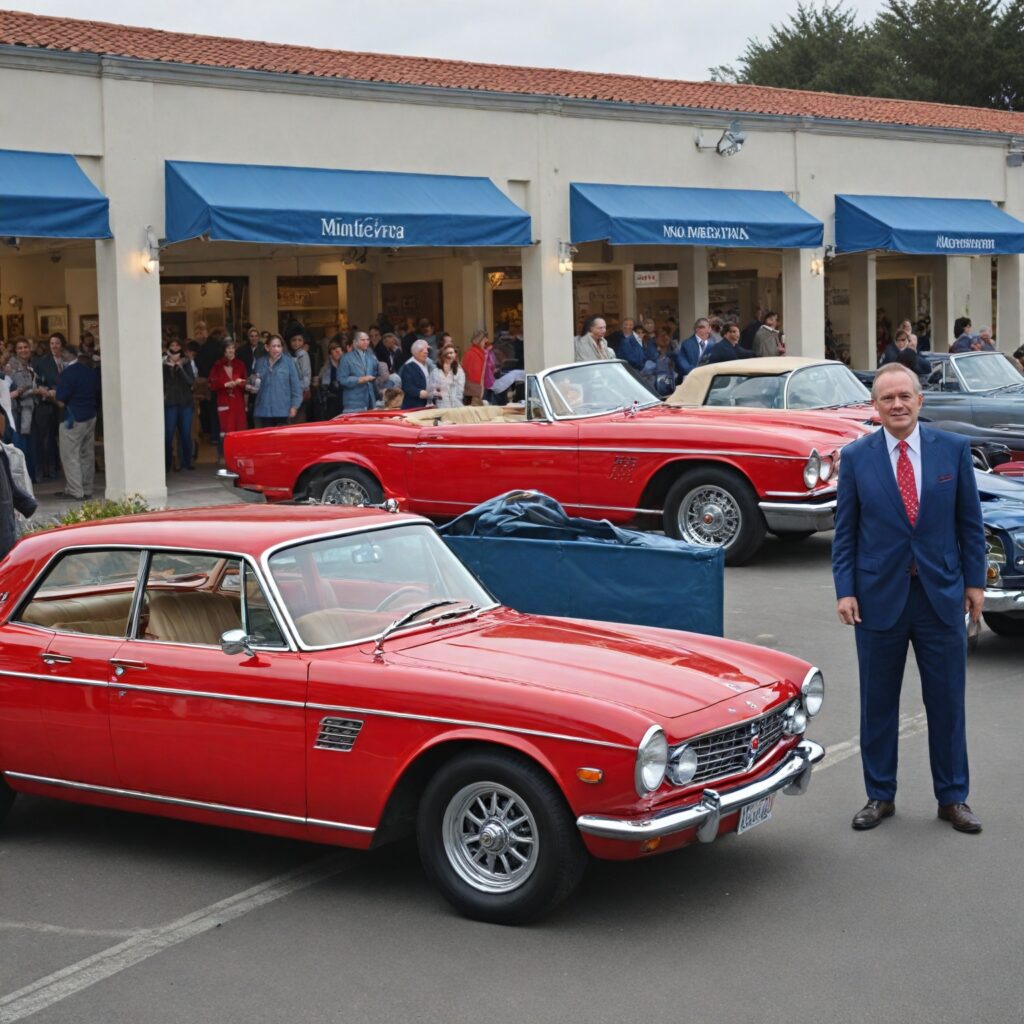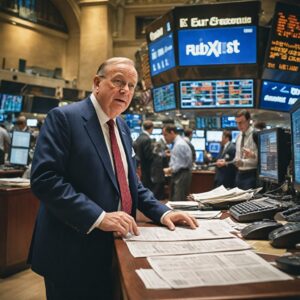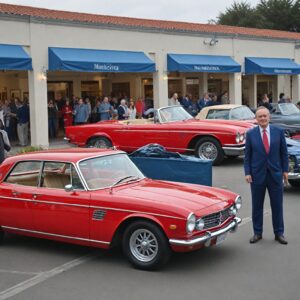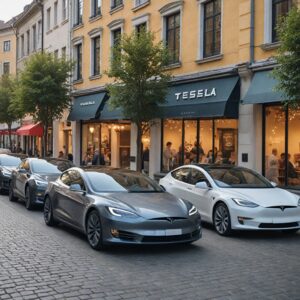
Highlights:
– The Monterey Car Week is witnessing up to $400 million worth of classic cars up for auction, indicating a pivotal moment for the collectible car market.
– Sales in the classic car sector are projected down 18% from their peak in 2022, with the high-end segment particularly sluggish.
– A generational shift in collectors is reshaping the market dynamics, as younger individuals gravitate towards newer, more practical models.
Introduction to the Classic Car Market
The classic car market is gearing up for an intense showdown at the iconic Monterey Car Week, where an impressive line-up of collectible automobiles valued at nearly $400 million will compete for attention. This annual event, celebrated since 1950 at Pebble Beach, is not just a paradise for car enthusiasts; it serves as a barometer for the health of the collectible car market. Globally renowned for its assembly of unique and valuable cars, Monterey has become synonymous with luxury and exclusivity, attracting investors and collectors who are keen to discover the latest trends.
Significantly, this year’s auction will showcase around 1,140 classic cars, marking a crucial moment for enthusiasts and wealthy owners alike. Industry analysts predict that total sales will reach between $367 million and $409 million, a sharp drop from the previous peak of $471 million in 2022. With the classic car market showing signs of a downturn, the outcome of this week’s auctions will provide valuable insight into the future trajectory of car collecting and appreciation.
Exploring Current Trends and Challenges
As the auction gears up, it’s clear that the high end of the collectible car market is facing substantial challenges. The Monterey auctions, featuring renowned auction houses like RM Sotheby’s, Gooding & Co., and Mecum, have struggled to meet the expectations set in prior years. For the first time in over a decade, there’s only a single car priced at $10 million or more up for sale—a stark contrast to past events. Furthermore, the average sale price dipped slightly from $477,000 last year to $473,000 this year, signifying a shift in market dynamics.
Several factors are attributed to this market deceleration, including global uncertainties intensified by geopolitical conflicts and fluctuating economic conditions. An uptick in interest rates has further complicated prospective buyers’ decisions, while a booming stock market has diverted the attention of high-net-worth individuals away from traditional collectible investments. However, one of the more profound influences shaping the market is generational change. As the baby boomer generation—historically the backbone of the classic car market—ages and downscales their collections, younger collectors are stepping in, often favoring modern cars over the timeless classics of yesteryear.
Implications and Future Outlook
The evolving landscape of the classic car market is marked by a transition that has left a noticeable gap in the appeal of older vehicles. The downturn in prices for cars from the 1950s and 1960s is indicative of a broader trend where younger generations prioritize practicality and personal enjoyment over merely viewing cars as investments. With an estimated $100 trillion set to transfer from older to younger generations, the shift towards collecting modern and new-age vehicles appears to be just beginning.
Interestingly, while older models grapple with declining interest, auctions for newer supercars are experiencing an upswing. Younger buyers are increasingly bidding for cars from the 1980s and onward, reflecting a preference for vehicles they can drive and enjoy rather than preserve as static investments. As this new generation expands its reach into the collector car market, the traditional values of classic car appreciation will likely be challenged. Consequently, both dealers and collectors will need to adapt to a market that is evolving faster than many anticipated.
In summary, the Monterey Car Week serves not just as a showcase of exquisite vehicles, but also as a pivotal moment for the classic car industry, grappling with significant shifts in buyer preferences amid market uncertainty. As we look to the future, will the classic car market find ways to evolve alongside new generations? How will the generational shift further impact valuations? What strategies might collectors adopt to navigate these changing trends?
Editorial content by Harper Eastwood

















